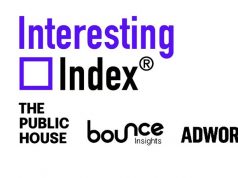 Five years after it first indicated that it was doing away with third-party cookies, Google has done a surprising U-turn Brendan Almack, managing director of Wolfgang Digital, examines what this means for the future of digital marketing.
Five years after it first indicated that it was doing away with third-party cookies, Google has done a surprising U-turn Brendan Almack, managing director of Wolfgang Digital, examines what this means for the future of digital marketing.
First off, we need to talk about cookies. Maybe we were distracted with Olympic fever (or the celebration of Ireland’s best medal haul ever 
What a rollercoaster ride we’ve been on with cookies. A journey that began way back in August 2019. Now, five years later, Google has stated that cookies will live on. We might never know the reasons why Google has applied the brakes here.
Perhaps it was concerns around future anti-competition issues, pressure from publishers or maybe 3rd party cookies are just too damn valuable and important for targeting that they simply couldn’t stomach the potential negative business impact.
So what does this mean for marketing right now?
Notwithstanding the why, it’s worth looking at the decision through the lens of three important questions that every marketer should be asking:. Does first-party data (FPD) become less valuable? Will digital marketing measurement improve and do I need to adjust my marketing strategy?
Let’s examine these questions in further detail.
First Party Data
Does first-party data (FPD) become less valuable?
Absolutely not and for a couple of reasons. Firstly, don’t forget that Apple has been a third-party cookie-free zone for a while now and currently has 28% of the mobile market globally, increasing to 55% in the US.
However, the more important reason is that FPD will power the AI models that sit behind a number of Google Ads and Meta campaign types. Google literally said this at Google Marketing Live when Jason Spero stated that “first-party data will power our models”. This means that campaigns that have FPD overlaid will perform better. This isn’t speculation, this is the current reality ( check out our last three case studies to see this in action.
Will digital marketing measurement improve?
Measurement is probably one of the only aspects of marketing to have gone backward in the last 5 years. Google Analytics used to be a reliable (enough) source of truth, but that’s no longer the case.
The outlook for digital marketing measurement remains complex and challenging. While Google’s decision to maintain third-party cookies might seem like it would provide continuity, the reality is that measurement tools and practices have been evolving rapidly and will continue to do so. The days of free-to-use accurate reporting are over and Google’s decision won’t change that.
However, there is light at the end of the dark measurement tunnel. While traditional measurement tools may be under strain, the rise of AI and machine learning in digital marketing offers new opportunities. For example, Google’s AI already looks at modeled conversions to improve their bidding strategies, which is way different from the old way of measuring conversions (observed conversions).
Beyond that, marketers will need to get comfortable with investing in longer-term measurement strategies such as Marketing Mix Modeling and Customer Lifetime Value (CLV). Google recognises this too and recently announced Meridian, their open-source MMM solution that they will begin inviting people to test.
Do I need to adjust my marketing strategy?
At Wolfgang, we believe that there is going to be (and needs to be) a shift in digital marketing towards New Customer Acquisition.
Too much media spend is wasted on re-acquiring existing customers. Media buying objectives such as ROAS have skewed digital targeting toward the lowest-hanging fruit, which is often your existing customers. Cookies help ad platforms identify these existing customers or potential customers about to make a purchase (hello remarketing!), but FPD is your best weapon for re-focusing your marketing on new customer growth.
Ad platforms make it way harder than it should be to identify new customers, but your CRM and FPD are your source of truth here. Use it effectively to ensure that your marketing efforts are growing your customer base. That’s how brands grow after all.
Finding the Sweet Spot
I’m sure many people will be frustrated by Google’s decision, but we’re eternal optimists here at Wolfgang. Simply the threat of a cookieless world has actually accelerated the marketing industry’s progress towards less reliance on the data of big tech while also forcing us to look at measurement beyond the short-term last click. Better marketing will happen because of this…cookies or no cookies.
Brendan Almack is managing director of Wolfgang Digital





















